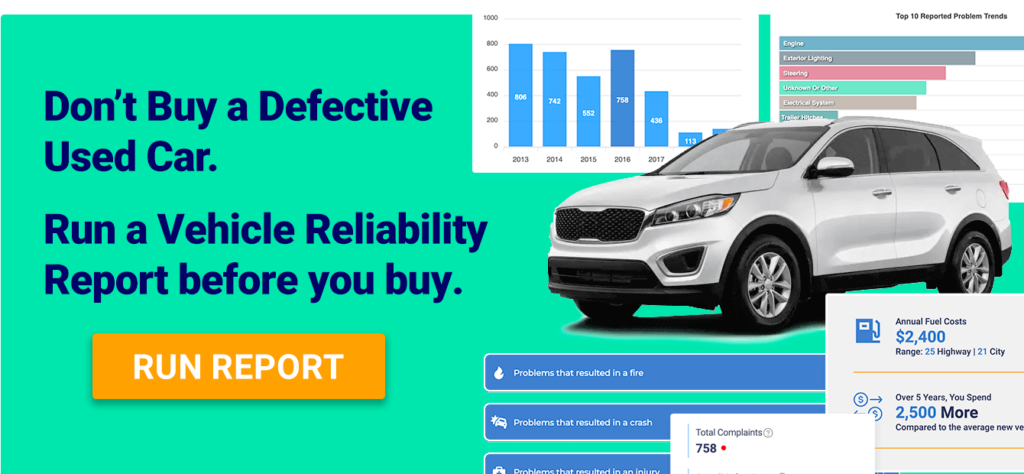Hyundai and Kia, two major players in the electric vehicle market, are currently embroiled in a lawsuit over charging problems of their vehicles. The lawsuit, challenges the two automakers advertised electric vehicle charging time claims.
Owners of Hyundai Ioniq 5, Ioniq 6, Genesis GV60, and Kia EV6 electric vehicles report charging failures at rates as low as 28 amps. The lawsuit alleges that these vehicles have a faulty charging port prone to overheating, which doesn’t resume charging when cooled. The result of the defect causes unexpected low charges, leaving users stranded.
Hyundai and Kia did release a software update to resolve owners complaints with the alleged defective charge ports. However, owners claim the update only slows charging, and restricts the use of 48-amp chargers.
The lawsuit, Bright, et al., v. Hyundai Motor Company has been filed that aims to confront the discrepancy between the promotional promises made by these two companies, and the actual experiences of their EV owner.
Let’s take a closer look into the charging problems with Hyundai, Kia, and Genesis EV models, and what drivers can do if they find themselves dealing with these same problems.
Owners Allege Hyundai Kia Charging Problems Due to Overheating
Hyundai and Kia claim that the electric cars they design and manufacturer can be fully charged at home in about 7 hours using a Level 2 charger. In fact, Hyundai makes this a core marketing theme, prominently displayed on their website for the Ioniq 5 cars.
Likewise, Kia’s website claims their EV6 car can be charged in just under 6 hours. Genesis says their car takes just over 7 hours.
However, owners represented in the lawsuit claim charge times promoted by Hyundai, Kia, and Genesis simply aren’t true. In fact, owners claim the chargers get too hot and stop working after just 30 to 60 minutes.
The result of the alleged charging problems means customers who charge their cars overnight often wake up to find their vehicles are not fully charged. Making matters worst, owners allege the chargers overheat and have the potential to damage parts of the car.
Did Hyundai Release a Software Update For Charging Problems?
Yes, Hyundai, Kia, and Genesis have all offered a software update to remedy charging problems. But instead of solving the problem, this update only slows down the charging.
Instead of the advertised 6 to 7 hour Level 2 charge times, the software update increases charging time to 10 hours or longer. While to some, an extra 3-4 hour charging requirement may not be a deal breaker. But keep in mind, this means customers didn’t get what they were promised when they bought the cars.
As such, the lawsuit claims Hyundai and Kia intentionally lowered the charging speed to avoid overheating. This in turn causes charging times to increase to 10 hours or more. Truth is, an overheating charger not only could damage the vehicle it’s charging, but lead to a fire risk.
Hyundai has tried to address the issue with a technical service bulletin (TSB 23-EV-003h), but they haven’t been clear about the fact the software update doubles charging time.
As one can imagine, this has left Ioniq 5, Ioniq 6, Genesis GV60, and Kia EV6 electric vehicle owners concerned and frustrated.
Is the Charging Problems Due to a Defect With the Vehicle or Level 2 Charger?
It’s suspected that the root of the problem lies in a design flaw of the charging port, and not the vehicle or software itself.
Owners describe the charging problem defect like this:
- Class vehicle is plugged into the Level 2 charger
- During charging session, the charger port begins to create excessive heat
- Once the port reaches a particular heat threshold, the vehicle detects the problem
- The vehicle, as a safety measure, cuts off the charging process early
However, the Level 2 charger doesn’t automatically resume once the temperature becomes safe again. This forces vehicle owners to continuously keep an eye on the charging process to guarantee its completion. Otherwise, the vehicle owners risk finding their cars with batteries not fully charged as expected.
Although Hyundai and Kia promote their electric cars as capable of charging with up to 48 amps, many owners have observed charging disruptions even at the lower threshold of 28 amps. One Hyundai Ioniq owner voiced their frustration:
This is extremely frustrating. I went from having no issues for the first year to this problem a couple months ago that seems to be getting worse. I set my charging to reduced and the charging still fails. I took my car in and all they did was install the slow charging update. They said nothing looks wrong with the charge port itself and theres nothing they can do. So now I basically have a car that takes 12ish hours to charge up, since even at 32 Amp setting it always fails and swaps to minimum charging rate. I don’t want to need 12 hours to charge my car. I paid for a car that should be able to L2 charge at 40 amps at least. I drive a lot some days, and this makes it very difficult to keep up with those miles.
Had I known about this issue I’d have purchased a model Y. I’m not sure if I can push for a lemon law but I’m ready to try. This needs to be fixed asap.
Some owners claim that their cars stop charging as early as 45 minutes into the process. Forcing owners to babysit the charging process, requiring up to six to eight separate charging sessions for a full charge.
TSB 23-EV-003h Details
| Bulletin Number | 23-EV-003H |
| Replacement Service Bulletin Number | N/A |
| NHTSA Item Number | 10233558 |
| Date Posted | 03-31-2023 |
| Component Name | 100000 POWER TRAIN |
| Make | HYUNDAI |
| Model | IONIQ 5 |
| Year | 2023 |
| Date Added | 04-03-2023 |
| Summary | If you are servicing a vehicle with either of the following conditions perform the procedure in this Bulletin to update VCMS software. Intermittently stops charging before charging completes. EV Light On with DTC P1BAD Charger |
What’s The Difference Between a Level 1 and Level 2 Charger?
Simply put, Level 1 and Level 2 chargers are ways to charge electric cars. Think of Level 1 as a regular plug you’d use for something like a laptop. It’s slower and usually takes all night to charge a car fully.
On the other hand, Level 2 is like the big plug you’d use for an oven. It charges cars much faster, often in just a few hours. However, Level 2 requires specialized equipment that plugs into a 240V AC outlet. Level 2 often requires a special setup in your home and is more expensive.
So, if you’re okay with slower overnight charging, Level 1 is fine. But if you want faster charges, you might consider Level 2.
Is there a Fix for the Hyundai, Kia, Genesis EV Charging Problems?
No, currently there is no known solution for the overheating issue during Level 2 charging in Hyundai, Kia, and Genesis vehicles.
Should Ioniq 5, Ioniq 6, Genesis GV60, and Kia EV6 Owners Be Concerned?
As of this writing, there are no known safety concerns over the charging defect. Owners claim the class vehicles detect the overheating, thus triggering deactivation of the charging session.
Owners Voices
I took possession of my vehicle 1/12/23 and charged it successfully in my garage with my level 2 charger at 48A per Hyundai’s specifications until May 19, 2023. Charging aborted prematurely on that date due to overheating of the charging port. Starting May 20, 2023 I lowered the charging rate in my level 2 charger to 40A despite Hyundai’s stated specifications that 48A was supported. I also started tracking my charging with an OBD2 scanner and noted the AC Inlet 1 port temperatures. From 6/26/23 to 7/25/23 as summer temperatures in my garage here in NJ from 75 to 84, peak port temperatures reached 226 to 237 degrees but charging completed. On 7/28/23 with a garage temperature of 86, port temperature reached 239 and charging aborted again. I then had to lower the charging rate to 36A. This is lengthening my charging times and is not consistent with Hyundai specifications when I purchased the car. I am concerned I will have to continue lowering the charging rate to continue operating the vehicle. These high temperatures may also be dangerous. Hyundai so far has merely issued a Technical Service Bulletin 23-EV-003H that does not fix or replace the inadequate part(s), it merely slows down charging inconsistent with their specifications. This is not acceptable and as a safety issue NHTSA should require Hyundai to recall and replace the insufficiently performing part(s). My car is available for inspection. This overheating and lengthening charging time is a safety issue. The vehicle has not been inspected by the manufacturer or local dealer. There were no warnings of these occurrences. Charging simply halts when it exceeds 237 degrees Fahrenheit for my 2023 model.
NHTSA ID Number: 11537699
Our car repeatedly fails to complete charging using Level 2 chargers at 48-amps. The car sends an overheating error, stops charging and then starts charging again later (presumably after it has cooled down). Sometimes is fails to restart charging completely. This makes it impossible to get a fast, reliable Level 2 charge in a timely manner. We get a text to our cell phones alerting us that charging has stopped due to overheating. We have notified our dealer and they are offering a software patch from Hyundai that simply slows the charge amperage to 28-amps when an overheating error occurs rather than offering a hardware solution that allows for full 48-amp Level 2 charging as the car is supposed to be capable of.
NHTSA ID Number: 11536831
My car fails to charge using Level 2 40 amp charger. The car is supposed to be able to maintain charging between 40 and 48 amps. It is clear that the car is overheating during Level 2 charging and suspending charging. This can be dangerous especially if the car is advertised to be able to charge normally using Level 2 chargers. Note that the summer has been hot. Even in my garage at night, I can no longer charge at 40 amps. I have to lower my Autel charger’s current down from 40 amps to 32 amps, and that seems to work. Outdoors during the day, I have to change the car’s current to 60%, just so it can continue to charge without overheating. My car is less than 6 months old.
NHTSA ID Number: 11535294
Charge port is overheating and stopping charging. Widespread issue after the cars age. Their only fix is a software update that drastically throttles current to the car. Rendering very long charging times compared to what was advertised. Something is deteriorating in the electrical system since the cars charge fine when new. Overheated electrical components is very concerning. I hope NHTSA makes Hyundai remedy this issue!
NHTSA ID Number: 11535122
I have a 2023 Ioniq 5 that was purchased in June, 2023 and an 2023 Ioniq 6 that was purchased in April, 2023. I had a new Chargepoint Home Flex charger installed in April when I purchased my Ioniq 6 and set the charging current to 40 amps. The charger was hardwired directly to my service panel with the appropriate 6 gauge wire and 60 amp breaker. My Ioniq 6 reliably charged at 40 amps until early July when it started dropping the charge rate to 23 amps about 40 minutes into my charging session when using the level 2 charger at home. My Ioniq 5 only charged at 40 amps for the first week of ownership before starting to drop the charge rate to 23 amps. When this behavior started I plugged an OBD2 scanner in and was able to monitor the AC Charging Inlet temperature and noticed that the charge drop happened when the temperature reached 240F. This causes an issue when planning my charge times because they can essentially double, meaning that my vehicles are not ready for a trip by the estimated time. I am also concerned that having electronics that overheat on an EV may be a potential fire hazard in the future. One of the key reasons for purchasing these vehicles was the advertised charge times. I have appointments with the dealership to have both vehicles examined.
NHTSA ID Number: 11533309
Hyundai, Kia, and Genesis Models Affected
The following Hyundai, Kia, and Genesis vehicles are affected by this alleged defect:
Status of the Hyundai, Kia, and Genesis Charging Problems Class Action Litigation
This is an active class action lawsuit.
Bright, et al., v. Hyundai Motor Company, case number 8:23-cv-01602, in United States District Court Central District of California.
Filed by the law firm of Sauder Schelkopf.
Questions About This Lawsuit?
MyCarVoice.com is not counsel or the settlement administrator in this class action lawsuit. Our goal is to inform owners of these vehicles of the recent lawsuit. This post will be updated when/if new suit information is released.
Please considering subscribing to this post for critical updates.
Are you driving a Hyundai Ioniq 5, Hyundai Ioniq 6, Genesis GV60, or Kia EV6 and having problems with the Level 2 charging port? If so, add your voice to this post in the comments below.
Add your car complaint for review


Managing Editor
Christopher is an automotive technical writer. When he’s not at the local autocross event, he can often be found working on one of his cars. Specializes in automotive class action law, industry trends, and automotive maintenance. Email me direct, or learn more about us

